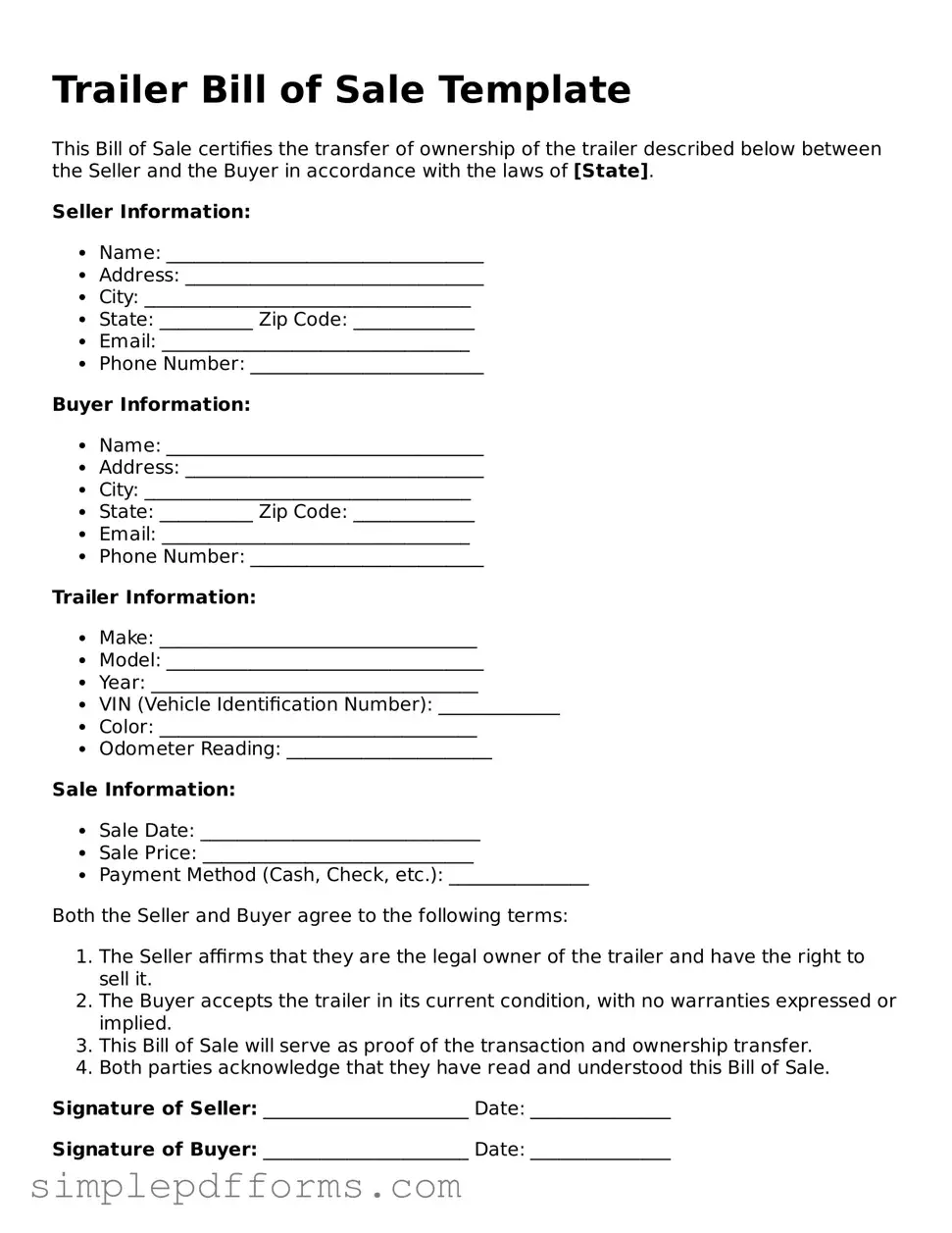Free Trailer Bill of Sale Form
The Trailer Bill of Sale form is a legal document used to transfer ownership of a trailer from one party to another. This form serves as proof of the transaction and includes essential details such as the buyer's and seller's information, trailer specifications, and the sale price. Having a properly completed Trailer Bill of Sale is crucial for both parties to ensure a smooth transfer of ownership and to avoid potential disputes in the future.
Open Trailer Bill of Sale Editor Now

Free Trailer Bill of Sale Form
Open Trailer Bill of Sale Editor Now

Open Trailer Bill of Sale Editor Now
or
Get Trailer Bill of Sale PDF Form
Your form is waiting for completion
Complete Trailer Bill of Sale online in minutes with ease.